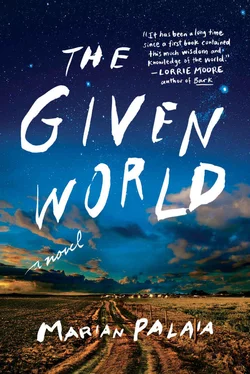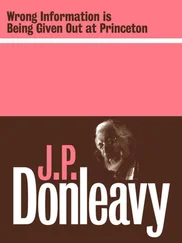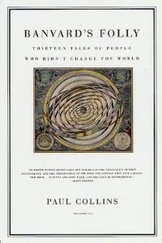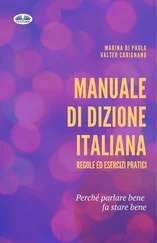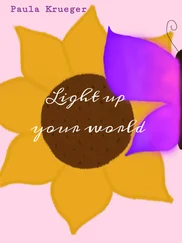What was interesting to you about the particular settings that you chose for the book? Why that particular time period, and those places?
I was a teenager in the 1970s, and Vietnam was very much on my radar. My parents were involved in the antiwar movement, and we lived in Washington, DC, at that time, so we went to the marches, we protested, we watched the war on TV. Years later, when I drove a newspaper truck for the San Francisco Chronicle, many of my carriers (aka paper boys) were Vietnamese, and I got to know them and their families, and some of their stories. That experience, along with having grown up during the war, led (in a not terribly direct fashion) to my moving to Saigon in the mid 1990s. Everyone thought I was crazy, but for whatever reason, I had to do it. It changed my life in a big way. Nothing I had imagined, good or bad, turned out to be true, and I spent enough time there for some things essential about the place to become ingrained in me. Which is not to say I really know Vietnam, or entirely understand its present or its history, but I got a much clearer picture of how much I did not know. Maybe writing The Given World was my way of trying to better understand something so totally ineffable. Aside from that, I have always been deeply affected, for whatever reason, by stories of the people damaged “collaterally” by war: soldiers on both sides, their families, their communities. I think if we ever had to admit to how many lives, generations even, are irrevocably damaged or destroyed by war, maybe we’d try harder to find a better way to settle our differences. Which, really, at the most human level, aren’t differences at all.
What made you decide to tell the story from Riley’s perspective — that is, from the point of view of a civilian and more particularly a young woman — rather than from anyone else’s?
Hers was just the first voice, the first life that came to me. In some ways she is very much like me in some of her experiences and outlook, and in other ways not at all. Without getting too much more specific, let’s just say I never stabbed anyone, or lived in my car for more than a few nights.
How did you conduct research for the novel? Were any historical texts particularly useful or enlightening, or did you rely more upon your own preexisting knowledge of the subject?
At my house in Montana I have an entire library of Vietnam books, both fiction and nonfiction. I have read them all, most of them more than once, and it is still so much to grasp: all the intricacies of the decisions, the mistakes that were made, how arrogant we were, how little we understood that the war we thought we were fighting was not the one the Vietnamese were fighting — and that’s why we pretty much got our asses handed to us and why all those people died or had their lives wrecked so unnecessarily. That being said, the book isn’t really about the war itself; but however much or little I do know about it informs everything Riley experiences, even as it stays so deeply in the background. I purposely kept it subtle, probably so subtle at times as to be completely undetectable.
Did you interview any veterans or other people who lived during the Vietnam War? If so, what struck you most about their accounts of postwar living?
The closest I came to interviewing anyone was talking with my uncle, who served two tours in Vietnam as a Green Beret and was based at Cu Chi, and who has not had the easiest time of it since coming home, but who is still, thankfully, here. Other than that, I have known quite a lot of people over the years who were either veterans of that war or relatives of the soldiers who fought it. In Vietnam I met and became friends with a lot of Vietnamese who had worked with the Americans during the war, including the mechanics who are now fixing bicycles on the sidewalks, and a photographer who worked with the AP and wound up in a reeducation camp afterward. What struck me most about all those people was how necessary it was for them to try to get on with their lives, despite how difficult it must have been. They seem to have turned that page, at least in regard to what they want to talk about, and they are busy living now and don’t have the luxury or the desire to revisit or revise history. As for being able to relate the stories of that generation and the impacts of the war and its aftermath, my oldest friends and I are that generation. That part is firsthand knowledge.
Are there any works of fiction about the Vietnam War and its aftermath — or about other wars — that you find particularly inspiring or important?
God, so many. The ones that immediately come to mind are Dog Soldiers by Robert Stone, The Things They Carried and Going After Cacciato by Tim O’Brien; Le Ly Hayslip’s When Heaven and Earth Changed Places; Robert Olen Butler’s Good Scent From a Strange Mountain; Michael Herr’s Dispatches ; Frances FitzGerald’s Fire in the Lake; Philip Caputo’s A Rumor of War; Neil Sheehan’s A Bright Shining Lie, and Stanley Karnow’s Vietnam: A History. Way too many more to name, but there is no leaving out The Quiet American, by Graham Greene. Such a perfect book. I love that one so much— I’ve probably read it a dozen times. The rest, maybe five or six or seven, only.
Excerpts of your novel have appeared online prior to the novel’s publication. How do you feel about their having a life independent of the book?
Since I began as a short-story writer, and since those pieces were more or less written as short stories, I am quite comfortable, and in fact I really love having them out there. It took me a while to get used to writing chapters that would not also pass as standalone stories, but those chapters, I think, do okay on their own.
On David Abram’s blog, The Quivering Pen , you said: “A collection of clever lines is not enough… it is only a starting place. I think many writers mistake it for a destination.” Can you speak more about that? What would you say is required of a good or successful work of fiction?
Wow. That’s kind of a huge question. I guess I could begin by reiterating that thought: it’s not enough to be clever, in your sentences or in your ideas. And it’s not enough to get from Point A to Point B, that is, simply telling a story. Writing is hard. One of the hardest parts is creating believable, complex, forgivable characters, but the really hard part is being completely emotionally honest. Ripping the scabs off. Uncovering your own heart and showing it to other people.
To which of the characters in your novel do you most relate — and why?
I guess that depends on what “relate” means, but Riley, for sure, a lot, because so many of her experiences mirror mine, but also Grace, the girl on the train — but maybe that’s not so surprising, since she is sort of a reflection of a younger Riley, by the time they meet. Funny, it was not deliberate, and until I went back for, like, the seventh revision, I didn’t see their similarities. The other characters I relate to in different ways, but every one of them was (and is) important to me, because a lot of them are the kinds of people who brought me up, more or less, when I first got to San Francisco. I was incredibly clueless, then, about so many things, and the people I learned the most from were the ones who had the least access to equilibrium and were the most scarred, inside or out, or both.
How has The Given World influenced your current writing projects or changed the way you write? Do you think you will revisit any of the characters or themes from this novel?
Читать дальше
